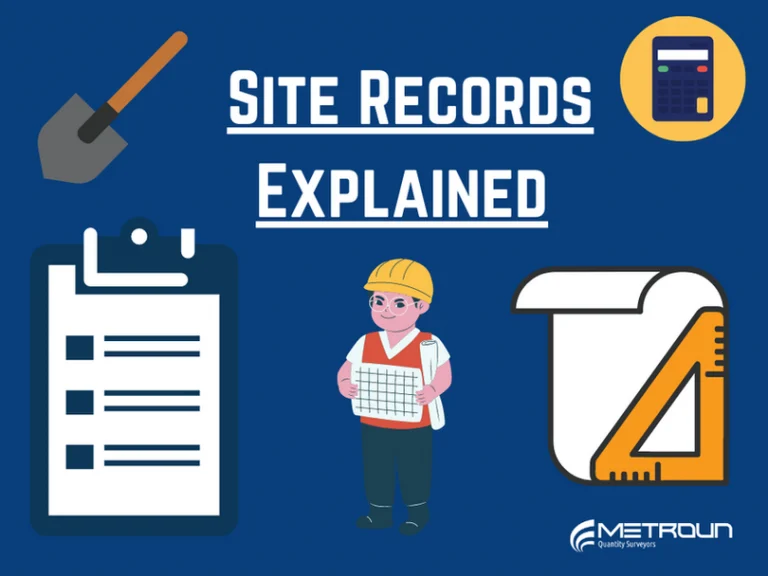Site Diaries, Daily Record Sheets, Job Packs, Site Field Reports… whatever your company, client, or subcontractor calls them, the importance of keeping accurate site records cannot be underestimated.
Whether you’re the Client, Principal Contractor, Tier One, or Tier Two, maintaining detailed daily records is critical for protecting your business, reducing disputes, and supporting cost recovery.
What Is a Site Record?
As the name suggests, a site record is a daily log, kept by a qualified person on site, such as a supervisor, site engineer, site manager, or site agent. It should provide a clear and detailed snapshot of what happened on site each day, including:
- Site activities and occurrences.
- Details of work carried out (measurements, quantities, volumes of materials used, etc.).
- Explanations of delays or issues encountered.
- Number of workers on site, with specifics of plant and equipment in use.
- Material deliveries.
And remember: a picture is worth a thousand words. Including photographs alongside written records strengthens the evidence, closing the door to misinterpretations or disputes.
Why Site Records Matter
Keeping accurate daily site records has multiple benefits, including:
- Protection in disputes with clients, contractors, or subcontractors.
- Serving as evidence in legal proceedings.
- Providing clear insight into what really happened on site.
- Acting as vital back-up for applications, especially under actual cost contracts.
- Defending against contra-charges or disallowed costs claimed by clients.
With recent data showing that UK construction disputes average around £27 million (Arcadis), the importance of good record keeping speaks for itself.
Storing Site Records
It’s not just about recording the information, it’s also about storing it properly.
On a typical construction project, the volume of site records can be vast. Poor storage risks losing critical information when it’s needed most. To avoid this:
- Avoid relying on email as the primary storage method.
- Set up a shared, cloud-based folder system for the relevant parties.
- Ensure records are kept in a consistent and organised fashion.
This ensures secure, accessible, and reliable record keeping throughout the project lifecycle.
Final Thoughts
Site records may feel like an administrative burden, but they are one of the most powerful tools in construction project management. They protect contractors from disputes, strengthen cost claims, and provide clarity when projects face challenges.
By keeping detailed records, storing them securely, and supplementing them with photos, you safeguard your project—and your bottom line.
Want to learn more about protecting against disallowed costs? Check out our video on NEC3 & 4 – Disallowed Costs Explained.










